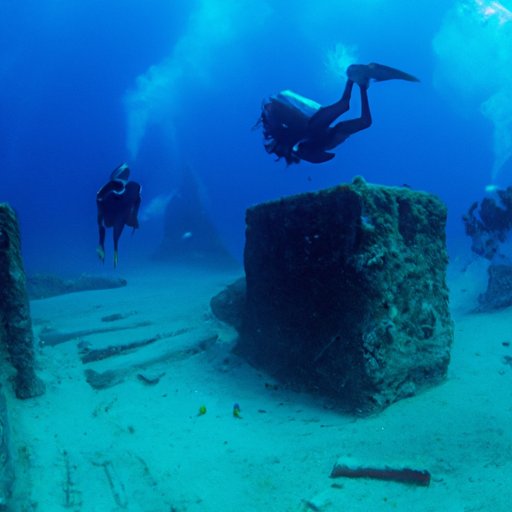
Introduction
If you are looking for a new water sport to try that combines adventure, discipline, and mental toughness, free diving might be the answer. Unlike scuba diving, free diving allows you to explore the underwater world without any equipment except for a mask, fins, and some weights. In this article, we will cover the science of free diving, its history, the gear you need, how to learn, the environmental impact, and the best destinations worldwide.
The Science of Freediving
Free diving is a sport that challenges the limits of the human body and mind. The most basic element of free diving is holding your breath underwater. When you are holding your breath, your body undergoes a series of complex physiological changes. First, your heart rate slows down, and your blood vessels constrict to preserve oxygen. Then, your body starts producing elevated levels of adrenaline, which helps you stay focused and alert. Finally, your spleen releases red blood cells, which can carry more oxygen to your body’s tissues.
If you want to train your body to be able to hold your breath longer, you need to practice breath control and relaxation techniques. Some popular methods include yoga, meditation, and pranayama. Additionally, you need to learn how to equalize your ears to the increasing pressure underwater, which involves pinching your nose shut and gently blowing through it.
Before you try free diving, it is crucial to understand the science behind it to stay safe and healthy. Serious accidents can happen if you push yourself too far or ignore the signals that your body sends you.
The History of Freediving
Free diving is not a new sport – in fact, humans have been diving without equipment for thousands of years. Some of the earliest records of free diving come from ancient cultures such as the Minoans and the Polynesians. In those societies, free diving was not just a way to gather food but also a means of spiritual practice.
Over time, free diving evolved into a sport, and competitions started to emerge. One of the most famous free divers in history is Jacques Mayol, who could hold his breath for over eight minutes and descended to a depth of 100 meters. His story was immortalized in the movie “The Big Blue.”
Today, free diving is a well-established sport with its own international federation (AIDA) and a set of rules and regulations. It is an Olympic-recognized discipline.
Freediving Gear
If you are just starting with free diving, you don’t need much gear – a mask, fins, and weights are enough. You can also wear a wetsuit to keep you warm in colder waters. As you progress, you might want to invest in more specialized equipment, such as a monofin or a carbon-fiber freediving fin, which can help you swim faster and more efficiently. You might also need a dive computer to monitor your depth, time, and oxygen levels.
Keep in mind that free diving gear is not as essential as in scuba diving, where you need a full set of equipment to breathe underwater. Free diving is all about minimizing your equipment and testing your limits.
Learning to Freedive
Learning to free dive requires discipline, patience, and courage. As a beginner, you should start with a certified instructor who can teach you the basics and guide you through the process of developing your skills. You will learn how to hold your breath, swim efficiently, equalize your ears, and stay safe.
For many free divers, the sport is not just a physical activity but also a mental challenge. It requires you to face your fears, practice mindfulness, and focus on the present moment. As you progress, you might discover new limits and develop a sense of personal growth and empowerment.
Environmental Impact of Freediving
Like any outdoor activity, free diving has an impact on the environment. Divers can damage the marine ecosystems by disturbing the underwater fauna, removing coral, or leaving trash. Therefore, it is crucial to practice responsible and sustainable diving and follow the principles of eco-tourism.
Some best practices for preserving the marine life during your free diving expedition include avoiding touching or stepping on the coral, not feeding the wildlife, and minimizing your impact on the reef. You can also participate in cleanup initiatives or support local organizations that promote marine conservation.
The Best Freediving Spots Worldwide
If you are looking for the ultimate free diving adventure, there are plenty of destinations around the world that offer stunning underwater landscapes, clear waters, and diverse marine life. Some of the best free diving spots include:
- Dean’s Blue Hole, Bahamas
- Dahab, Egypt
- Koh Tao, Thailand
- Bali, Indonesia
- Gili Islands, Indonesia
Each location has its own unique features and challenges, so make sure to do your research and choose the one that fits your skills and preferences.
Conclusion
Free diving is not just a sport, but also a way of life. It challenges your limits, connects you with the natural world, and teaches you the importance of mindfulness and respect. Before you start diving, make sure to learn the science behind it, practice with a certified instructor, and follow the principles of eco-tourism. With dedication and practice, you might discover a new passion and unlock your inner potential.





